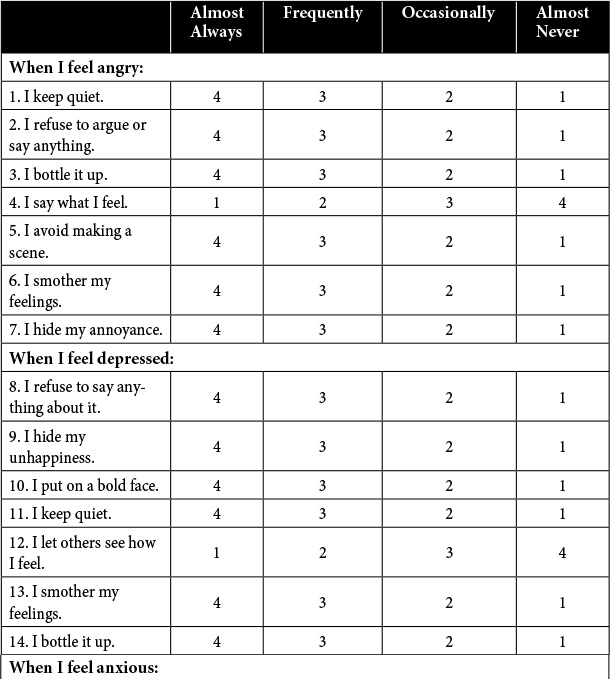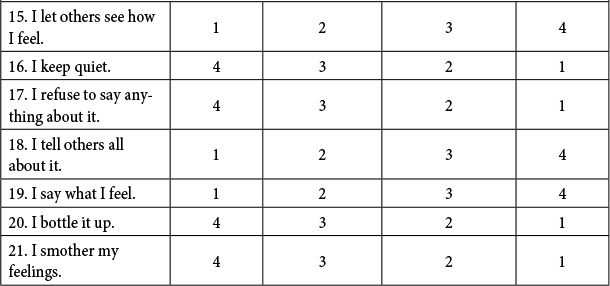
The following lists some of the reactions people have to certain feelings or emotions. Read each one and indicate how it describes the way you generally react. Indicate your answer by circling the appropriate number.1


Add up the numbers you circled. Your score will fall somewhere between 21 and 84. The higher your score, the greater control you exhibit over your emotions.
Your score reflects your response to three emotions: anger, depression, and anxiety. Although this doesn’t cover every emotion you’re likely to experience, your score provides important insights into how your feelings might influence how you make decisions.
High scores (approximately 50 or higher) suggest you have relatively strong control over your emotions. Low scores (approximately 40 or less) indicate that your emotions can sometimes get the best of you. For instance, in times of crisis or stress, you may show occasional outbursts and lose your cool. When you’re calm, it’s easier to be clear thinking and rational, which is more likely to lead to making better choices. However, after a decision is made, strong emotional commitment becomes a plus because it frequently increases the likelihood that the decision will be carried out. So emotions often provide the motivation to translate decision choices into action. However, for the most part, you’re likely to make better decisions when you’re calm and have your emotions under control.
Emotions are intense feelings directed toward someone or something. I express emotions when I’m angry at my landlord, fearful of losing my job, or happy about my daughter’s good grades in school.
The rational model of decision making downplays the role of anxiety, fear, frustration, happiness, envy, and similar emotions. Yet it’s naïve to assume that decision choices aren’t influenced by our feelings at a particular moment. Given the same objective data, we should expect that people might make different choices when they’re angry and stressed-out than when they’re calm and collected. And some people are much more likely to let their immediate emotions shape their decision choices than are others. Negative emotions like anger or sadness, for instance, can result in a limited search for new alternatives, a less vigilant use of information, or the desire to make a decision too quickly.